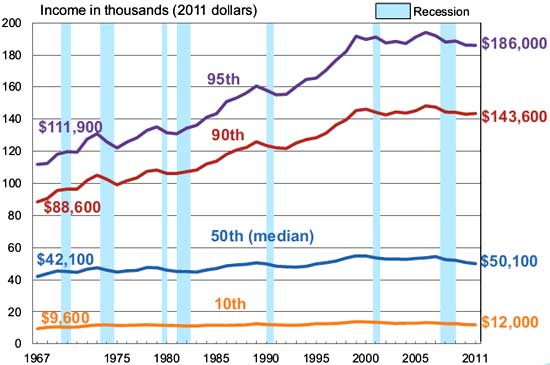I ask the following question during and after reading the following article:
Can we return to the wealth of inexpensive energy necessary to support a middle class high quality lifestyle known to most USA citizens back in the early 1960s?
Here's the article reference which spurred my question and goal:
"The Center Didn't Hold"

by Tyler Durden
Feb 3, 2017 9:15 PM
"The Center Didn't Hold" | Zero Hedge
So, in response to that article, I wonder if solar power, hydroelectric power, wind power, batteries, and electric cars can bring us back to the wealth of energy we lived on during the early 1960s and around then. I think this is a goal that we should actively pursue. I think if Elon Musk and Donald Trump saw these as goals (despite their respective personal lacks of need for it themselves), they could help push this a little bit. Even more, I think we the people can push it even more. But I think most of it comes from market economics: will new (clean, as it happens) energy replace old (half dirty, as it happens) energy's former lower level of cost, i.e., plentiful and inexpensive, ushering in a new age of wealth, health, and moral quality?
Can we return to the wealth of inexpensive energy necessary to support a middle class high quality lifestyle known to most USA citizens back in the early 1960s?
Here's the article reference which spurred my question and goal:
"The Center Didn't Hold"

by Tyler Durden
Feb 3, 2017 9:15 PM
"The Center Didn't Hold" | Zero Hedge
So, in response to that article, I wonder if solar power, hydroelectric power, wind power, batteries, and electric cars can bring us back to the wealth of energy we lived on during the early 1960s and around then. I think this is a goal that we should actively pursue. I think if Elon Musk and Donald Trump saw these as goals (despite their respective personal lacks of need for it themselves), they could help push this a little bit. Even more, I think we the people can push it even more. But I think most of it comes from market economics: will new (clean, as it happens) energy replace old (half dirty, as it happens) energy's former lower level of cost, i.e., plentiful and inexpensive, ushering in a new age of wealth, health, and moral quality?
Last edited:




